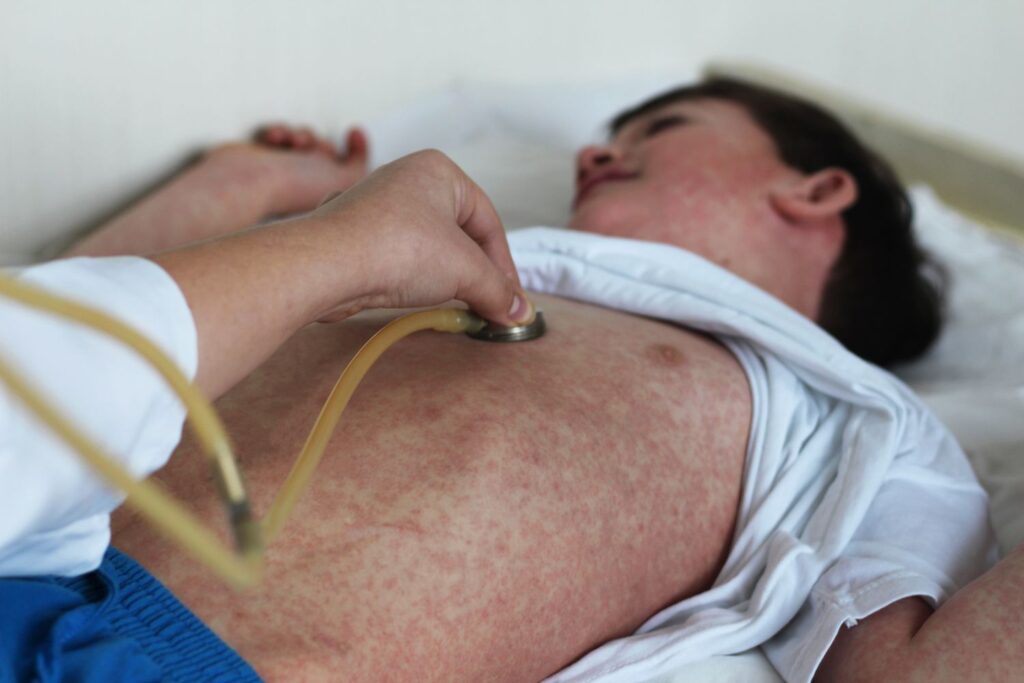Canada has officially lost its measles-free status, meaning the highly contagious disease is once again consistently circulating in the country.
The declaration was made by the international health organization Pan American Health Organization (PAHO), according to a statement from the Public Health Agency of Canada (PHAC) released on Monday (November 10). After reviewing recent epidemiological and laboratory data from Canada, PAHO concluded that the same measles strain has been circulating in the country for more than a year.
you may like
In July, PAHO noted that the number of measles cases in the Americas will increase 29 times in 2025 compared to 2024. At the time, Canada reported the highest number of cases among the countries assessed, with 3,170 reported between January and July.
As of late October, more than 5,100 measles cases had been reported in Canada this year, including 4,777 confirmed cases and 361 probable cases. These cases have been confirmed in 10 regions: Alberta, British Columbia, Manitoba, New Brunswick, Nova Scotia, Ontario, Prince Edward Island, Quebec, Saskatchewan and the Northwest Territories.
This year’s cases mark the continuation of a large-scale outbreak spanning multiple jurisdictions that first hit the country in October 2024, according to a statement from PHAC. PHAC officials said, “While transmission has slowed recently, the outbreak has continued for more than 12 months, primarily in communities with insufficient vaccination.”
The statement said PHAC is currently working with PAHO and federal, state, territorial and community partners to improve vaccination rates, strengthen surveillance efforts and provide evidence-based guidance to communities. Canada could regain exclusion status if “transmission of measles strains associated with the current outbreak is prevented for at least 12 months.”
Meanwhile, the United States eliminated measles in 2000, but the number of cases has recently increased as well. Texas has been the hardest-hit state this year, followed by Arizona, New Mexico and Kansas. According to the latest data, nearly 1,700 cases will be reported nationwide by 2025, up from 285 cases in all of 2024.
“Measles vaccination is the best way to prevent measles and stop its spread,” says Johns Hopkins University’s U.S. Measles Tracker. “Measles vaccination status in the United States makes this clear.” “Unvaccinated people or people whose vaccination status is unknown account for nearly all measles cases reported in the country this year.”
The childhood immunization schedule is under new scrutiny under Secretary of Health and Human Services and anti-vaccine activist Robert F. Kennedy Jr., but so far the measles vaccination recommendations have remained largely unchanged.
Nevertheless, measles vaccination rates in the United States have fallen to worryingly low levels in recent years. Models suggest the disease could become endemic in the country within 20 years if current vaccination rates remain stable. This scenario would result in an estimated 851,300 measles cases, 170,200 hospitalizations, and 2,550 deaths over the next 25 years. And given that measles can cause a variety of long-term health complications for survivors of the disease, the United States will likely see a similar cascade of problems proliferate.
Models show that if vaccination rates decline instead of stabilizing as in the above scenario, the predicted outcome would be even worse.
This article is for informational purposes only and does not provide medical advice.
Source link

